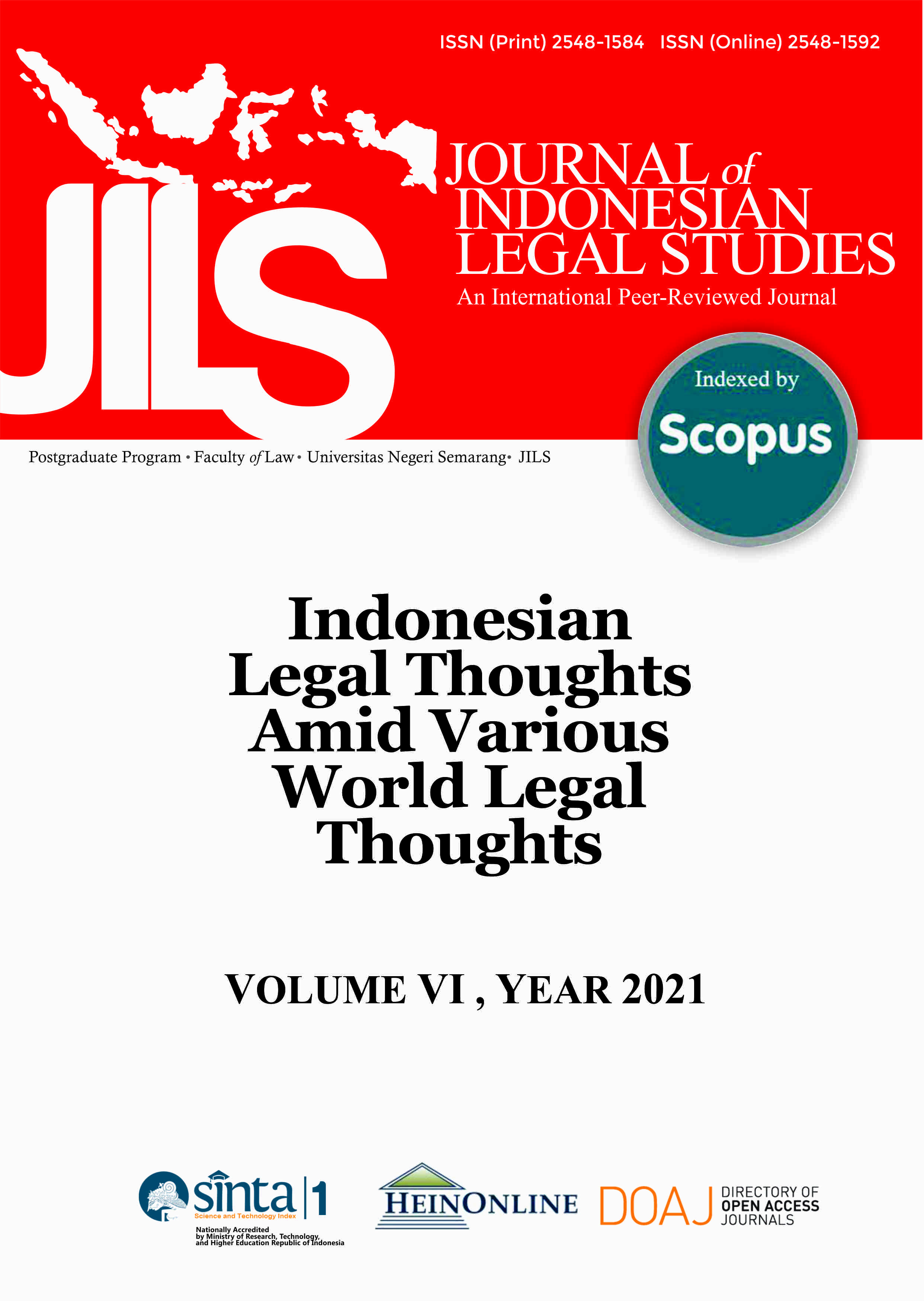Confronting E-Government Adoption in Indonesian Local Government
Main Article Content
Abstract
Indonesia passed an e-government law in 2018, ushering the country's society into the information age across a range of sectors, including social, economic, communication, transportation, literacy, and public services. This transformation has benefited enormously from the facilitation of information technology in terms of productivity, comfort, compassion, and time elapsed. Local governments in Indonesia, on the other hand, are slowing the adoption of e-government, which has progressed to the second stage of implementation, which is the introduction or integration of cross-sectoral systems. This article claims that local governments face challenges in this second stage as a result of departmental egos that make it difficult to unite around shared objectives. The whole government approach is suggested in this paper as a concrete policy strategy for eradicating sectoral egos within local government departments. It places a premium on collaboration in order to accomplish the government's vision and objectives.
Article Details

This work is licensed under a Creative Commons Attribution-ShareAlike 4.0 International License.
All writings published in this journal are personal views of the authors and do not represent the views of this journal and the author's affiliated institutions. Author(s) retain copyrights under the licence of Creative Commons Attribution-ShareAlike 4.0 International (CC BY-SA 4.0).
References
Becker, J., Niehaves, B., Algermissen, L., Delfmann, P., & Falk, T. (2004). e-Government Success Factors. 503–504.
Buluamang, Y. M. O., & Handika, L. P. (2018). Komunikasi Pemerintahan Antar Perangkat Daerah di Provinsi Nusa Tenggara Timur (NTT). Jurnal Penelitian Komunikasi, 21(1), 57–72. https://doi.org/10.20422/jpk.v21i1.481
Carter, L., & Bélanger, F. (2005). The utilization of e-government services: Citizen trust, innovation and acceptance factors. Information Systems Journal, 15(1), 5–25. https://doi.org/10.1111/j.1365-2575.2005.00183.x
Departemen Komunikasi dan Informatika RI. (2016). Cetak Biru (Blueptint) Sistem Aplikasi E-Government bagi Lembaga Pemerintah Daerah. In depkominfo. depkominfo. https://doi.org/10.1093/pa/gsg026
Djunaedi, A. (2002). Beberapa pemikiran penerapan e-government dalam pemerintah daerah di Indonesia. Seminar Nasional E-Government & Workshop Linux, 30 Oktober 2002. http://mpkd.ugm.ac.id/weblama/homepageadj/support/publikasi/ti-egov/egovtpemdaindo.pdf
Evangelidis, A., Akomode, J., Taleb-Bendiab, A., & Taylor, M. (2002). Risk assessment & success factors for e-government in a uk establishment. Lecture Notes in Computer Science (Including Subseries Lecture Notes in Artificial Intelligence and Lecture Notes in Bioinformatics), 2456, 395–402. https://doi.org/10.1007/3-540-46138-8_64
Fang, Z. (2002). e-Goverment in digital era : concept, practice and development. International Journal of the Computer, the Internet and Management, 10(2), 1–22.
Gichoya, D. (2005). Successful implementation of ICT projects in government. Proceedings of the European Conference on E-Government, ECEG, 3(4), 171–182.
Hadinagoro, S. S. (2020). Reduksi Ego Sektoral dan Perkuat Sinergi Demi Produktivitas Nasional. Perpustakaan Nasional Republik Indonesia.
Hardjaloka, L. (2014). Studi penerapan E-Government di Indonesia dan negara lainnya sebagai solusi pemberantasan korupsi di sektor publik Implementation Study on E-Government in Indonesia and Other Countries As A Solution in Eradicating Corruption in Public Sector). Jurnal RechtsVinding, 3(3), 435–452. https://rechtsvinding.bphn.go.id/ejournal/index.php/jrv/article/viewFile/35/37
Hasibuan, Z. a. (2007). Langkah-Langkah Strategis dan Taktis Pengembangan E-Government Untuk Pemda. Jurnal Sistem Informasi MTI UI Vol 3, 3(1), 1–5.
Indrajit, R. E. (2006). Evolusi Strategis Integrasi Sistem Informasi Ragam Institusi: Kiat Memecahkan Permasalahan Politis dalam Kerangka Manajemen Perubahan. Prosiding Konferensi Nasional Teknologi Informasi & Komunikasi Untuk Indonesia, 98–101.
Jaeger, P. T., & Thompson, K. M. (2003). E-government around the world: Lessons, challenges, and future directions. Government Information Quarterly, 20(4), 389–394. https://doi.org/10.1016/j.giq.2003.08.001
Ke, W., & Wei, K. K. (2004). Successful e-government in Singapore. Communications of the ACM, 47(6), 95–99. https://doi.org/10.1145/990680.990687
Lin, F., Fofanah, S. S., & Liang, D. (2011). Assessing citizen adoption of e-Government initiatives in Gambia: A validation of the technology acceptance model in information systems success. Government Information Quarterly, 28(2), 271–279. https://doi.org/10.1016/j.giq.2010.09.004
Lin, F., Fofanah, S. S., Liang, D., Almarabeh, T., & AbuAli, A. (2010). A general framework for E-government: Definition maturity challenges, opportunities, and success. Government Information Quarterly, 28(2), 271–279. https://doi.org/10.1016/j.giq.2010.09.004
Middleton, M. (2007). Approaches to Evaluation of Websites for Public Sector Services. Proce, 279–284.
Ndou, V. (Dardha). (2004). E-Government for Developing Countries: Opportunities and Challenges. EJISDC, 18(1), 1–24.
Rasyid, E., Partini, P., Haryadi, F. T., & Zulfikar, A. (2019). Jaringan komunikasi dalam pengelolaan perencanaan program penanggulangan kemiskinan di Provinsi Sulawesi Barat. Jurnal Kajian Komunikasi, 7(2), 133. https://doi.org/10.24198/jkk.v7i2.19574
Saha, P., Nath, A., & Salehi-Sangari, E. (2010). Success of government e-service delivery: Does satisfaction matter? Lecture Notes in Computer Science (Including Subseries Lecture Notes in Artificial Intelligence and Lecture Notes in Bioinformatics), 6228 LNCS, 204–215. https://doi.org/10.1007/978-3-642-14799-9_18
Satriya, E. (2006). Pentingnya Revitalisasi E-Government di Indonesia. Prosiding Konferensi Nasional Teknologi Informasi & Komunikasi Untuk Indonesia 3-4 Mei 2006, Aula Barat & Timur Institut Teknologi Bandung 38, 38–43.
Wiryanto, W., & Afif, M. M. (2003). Akuntabilitas layanan publik mel alui penerapan sistem pemerintahan berbasis elektronik. 63–77.
Yunita, N. P., & Aprianto, R. D. (2018). Kondisi Terkini Perkembangan Pelaksanaan E-Government Di Indonesia : Analisis Website. Seminar Nasional Teknologi Informasi Dan Komunikasi, 2018(Sentika), 329–336.
